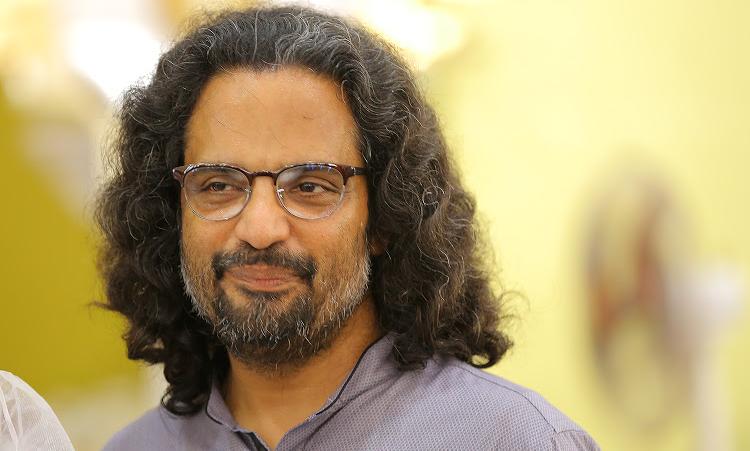Accused Wilson seeks probe into planting of fake evidence into his computer
Thursday, 11 February 2021
 Rona J. Wilson, one of prime accused in the sensitive Bhima-Koregaon case, on Wednesday moved the Bombay High Court seeking formation of a Special Investigation Team (SIT) to look into the “fake evidences” planted into his computer ahead of his arrest in the case, and dismissal of the case against him.
Rona J. Wilson, one of prime accused in the sensitive Bhima-Koregaon case, on Wednesday moved the Bombay High Court seeking formation of a Special Investigation Team (SIT) to look into the “fake evidences” planted into his computer ahead of his arrest in the case, and dismissal of the case against him.
In an application filed through his lawyer R. Sathyanarayanan, Wilson cited a report prepared by a US-based digital forensic firm Arsenal Consulting which has said that a Wilson’s laptop was hacked and 10 letters planted in it ahead of his arrest.
It may be recalled that the Pune Police and later the NIA had used the letters allegedly recovered from the computer of Human Rights activists Rona Wilson Jacob to make out a case against him other activists arrested in the famous Bhima-Koregaon case.
Among other things, Arsenal Consulting has claimed that not only Wilson’s computer was ‘attacked and compromised’ from June 13, 2016 for over 22 months, but similar malware attacks were made on even other accused in other high-profile Indian cases.
The hacker, who has not been identified, had used the malware to create hidden folders where the 10 incriminating letters were sent using an advanced version of MS Word which was not available on Wilson’s laptop.
The US firm’s report further said that it found no evidence suggesting that Wilson ever interacted with the top 10 most important documents used to prosecute him, and said he had in fact never opened those documents.
The scanned copies of letters were among the virtual and physical documents recovered by the investigators during their simultaneous raids conducted by the investigators on April 17 2018 ahead of the arrest of Wilson and other accused in the case.
On the basis of one of the allegedly incriminating letters seized from Wilson’s computer, the Pune police had claimed that the CPI (Maoist) had hatched a “conspiracy” to “overthrow” the Government and “target” the country’s highest political functionary.
The letter, written by “R” (which the investigators suspected might be Rona Jacob himself) and addressed to one comrade Prakash, states: “We are thinking along the lines of another Rajiv Gandhi-type incident. It sounds suicidal and there is a good chance we might fail but we feel the party must deliberate over our proposal. Targeting his road shows could be an effective strategy. We collectively believe that survival of the party is supreme to all sacrifices”.
The letter also talks about the requirement of Rs 8 crore to procure M-4 rifles as an annual supply and four lakh rounds of ammunition.
Among other things, the letter states: “Modi-led Hindu fascist regime is bulldozing its way into the lives of indigenous adivasis, in spite of big defeats like Bihar and West Bengal.
Modi has successfully established BJP govt in more than 15 states. If this pace continues then it would mean immense trouble for the party on all fronts. Greater suppression of dissent and more brutal form of Mission 2016 (OGH). Com. Kisan and few other comrades have proposed concrete steps to end Modi-raj”.
“Defeating Hindu fascism has been our core agenda and a major concern for the party…. We are trying to consolidate ties with like-minded organisations, pol. parties, representatives of minorities across the country,” the letter stated.
The arrests of five “Maoist-linked” activists were made under the FIR registered on January 8, 2018 at the Pune’s Vishram Baug Police Station in connection with the Elgar Parishad organised on December 31, 2017 by the leftist outfit Kabir Kala Manch (KKM) and Republican Panthers Party ahead of the January 1, 2018 Bhima-Koregaon riots. The FIR, originally registered u/s 153(A), 505 (1)(b), 117 and 34 of the Indian Penal Code (IPC), was made a conspiracy case in March 2018 and now has sections of the Unlawful Activities Prevention Act (UAPA) added to it.
It may be recalled that on January 1, one Rahul Phatangale (28), a Dalit, was killed and another 40-odd vehicles and some other property were damaged after some miscreants attacked Dalits celebrating the January 1, 1818 victory of British troops over Peshwa Bajirao II’s army at Bhima-Koregaon in Pune district of western Maharashtra. Following the incident, Maharashtra had witnessed large-scale Dalit protests which turned violent at some places.



